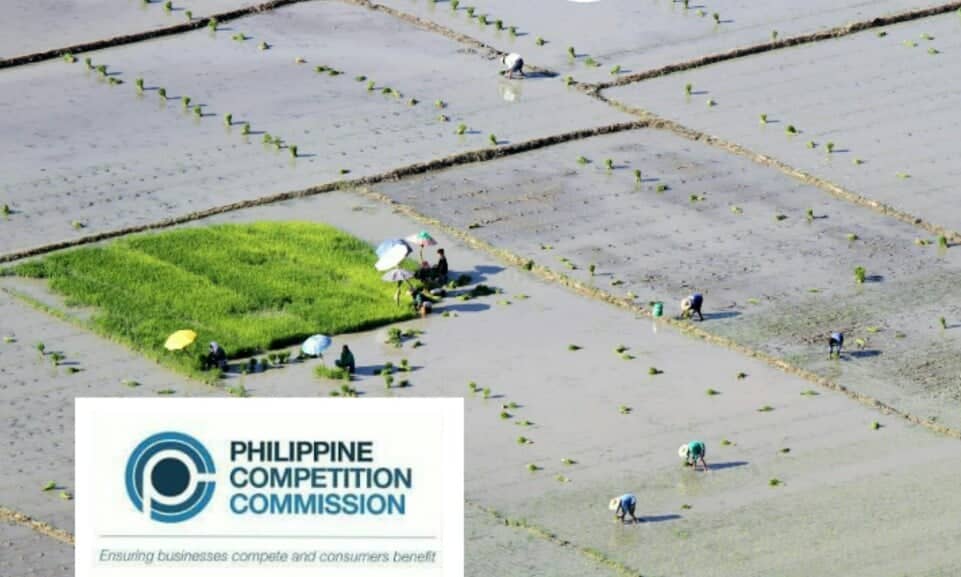By Leslie Gatpolintan
The Philippine Competition Commission (PCC) is looking deeper into “middle phase transactions” in rice trade as retail prices remain high despite the falling farm gate prices amid surging importation following the passage of the rice tariffication law.
PCC Commissioner Johannes Bernabe is referring to the involvement of middlemen, traders, millers and wholesalers in the distribution and facilitation of distribution of rice to the end users.
“If there is concentration, if there are players who are in a dominant position in certain markets for this middle phase transactions, then is it worsening the gap between farm gate prices and retail prices. If some of them are in a dominant or, worse, if they are engaged in cartelistic behavior, then they will exacerbate between farm gate prices and retail prices,” he told reporters Wednesday, October 23, on the sidelines of a competition policy forum.
Bernabe noted there are certain relevant geographic markets which seem to indicate that it is “worth pursuing” whether there are some anti-competitive behaviors going on.
“Primarily, the ones who have leverage in this value chain appear to be the middlemen. At this point, we don’t want to say anyone is liable, that there are any guilty parties. It’s just that in the PCC, it behooves us to try and narrow down who it is we should be prioritizing in terms of examining behavior or conduct,” he said.
He believes that farmers are not in a position to abuse what they have because they are not organized, and do not have any leverage in imposing prices at levels which are sustainable.
Bernabe said it is difficult to state if there is a cartel among all middlemen in the whole country because of its archipelagic nature.
“You have to reduce it to: is it happening in Luzon? Is it happening in Visayas or Mindanao? Or is it happening within subregions? Is it happening, for instance, in Central Luzon? In this particular case, we have tools at our disposal to request for information from entities who may not be liable, who may not be suspected of doing any wrongful acts. As part of our mandate in our law, we are empowered to request for information from them,” he said.
Bernabe added the PCC’s enforcement office can conduct inquiries or investigation, surveillance and monitoring if these are necessary and appropriate.
“If we are able to establish that there is anticompetitive behavior going on, whether it is in the form of cartel or abuse of dominant position, then the Philippine Competition Act kicks in. In that case, we will have to enforce the full force of the law and sanction those conduct, those acts,” he said.
PCC chair Arsenio Balisacan said that “if turns out there are cartels, administrative and criminal. If it’s criminal, cartel, that comes with administrative fines or (it) could be imprisonment”.
The PCC and the Department of Agriculture (DA) have sealed a partnership to investigate the possible manipulation of rice prices in the country.
“That’s the basis of this undertaking, we want to understand where that is coming from. Is it because of too much imports or production is too much relative to the demand of the millers? Why has farm gate price fallen sharply? (It is) not as easy as it seems, you have to understand the dynamics. DA has been accumulating info(rmation) about that,” Balisacan said. (First published by PNA, Oct. 23, 2019)














